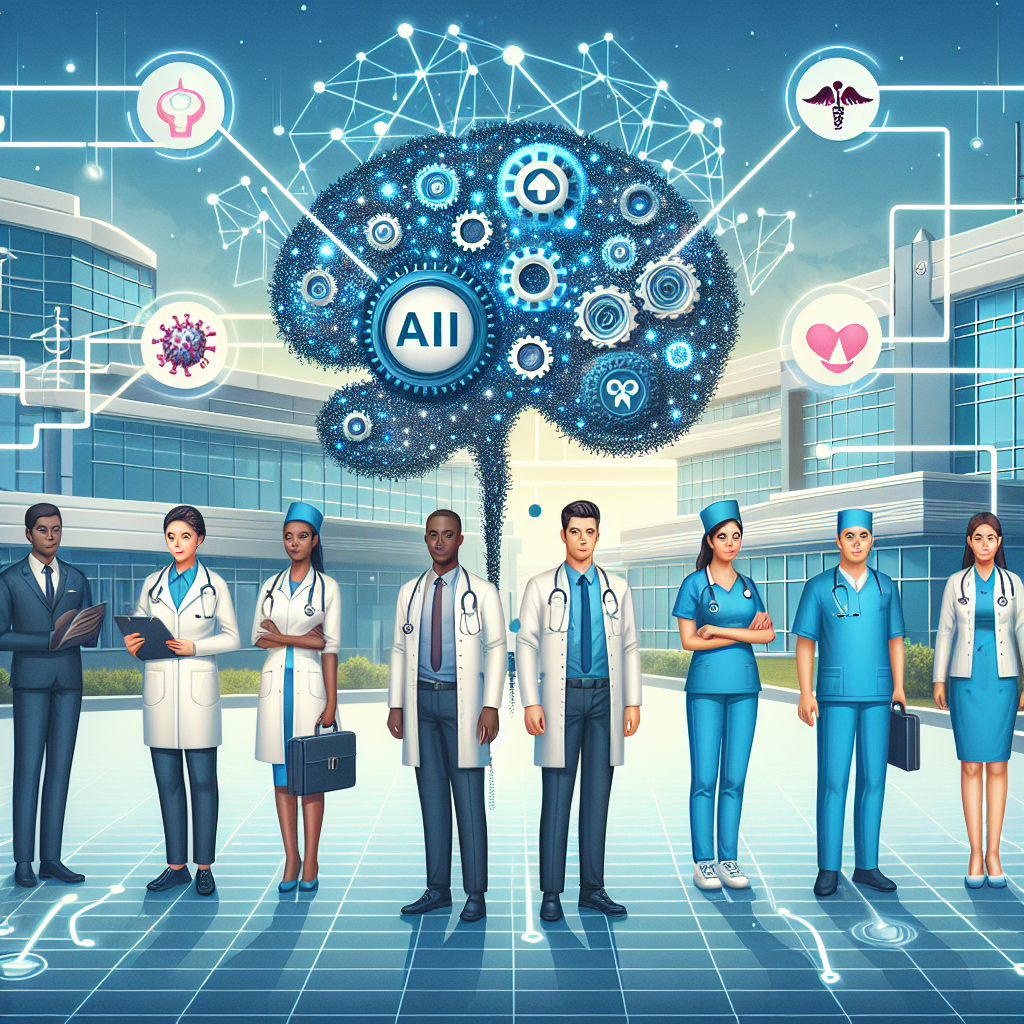Artificial intelligence (AI) has been transforming industries across the board, and healthcare staffing is no exception. The use of AI in healthcare staffing has the potential to revolutionize the way healthcare providers are matched with job opportunities, streamline recruitment processes, and improve patient care. In this article, we will explore the various ways in which AI is being used in healthcare staffing, its benefits, challenges, and the future of AI in this field.
One of the most common applications of AI in healthcare staffing is in the recruitment process. AI-powered platforms can analyze resumes, identify relevant skills and experiences, and match candidates with job openings based on their qualifications. This not only saves time for healthcare organizations and recruiters but also ensures that the best candidates are selected for the job.
AI can also help healthcare organizations predict staffing needs more accurately. By analyzing historical data on patient volume, staff turnover rates, and other factors, AI algorithms can forecast future staffing requirements and help organizations plan their recruitment strategies accordingly. This can help prevent understaffing or overstaffing situations, leading to better patient care and cost savings for healthcare providers.
Another important use of AI in healthcare staffing is in scheduling and workforce management. AI-powered systems can optimize staff schedules, taking into account factors such as staff availability, patient demand, and regulatory requirements. This can help healthcare organizations ensure that they have the right staff in the right place at the right time, leading to improved efficiency and patient satisfaction.
AI can also be used to improve the onboarding process for new hires in healthcare organizations. By analyzing data on employee performance, training outcomes, and other relevant factors, AI algorithms can identify areas where new hires may need additional support or training. This can help healthcare organizations tailor their onboarding programs to the specific needs of each employee, leading to faster integration and improved job satisfaction.
In addition to recruitment, workforce planning, scheduling, and onboarding, AI is also being used in healthcare staffing to improve employee engagement and retention. By analyzing data on employee satisfaction, turnover rates, and other factors, AI algorithms can identify patterns and trends that may indicate potential issues with staff morale or job satisfaction. This can help healthcare organizations take proactive measures to address these issues and improve overall employee retention.
Despite the many benefits of AI in healthcare staffing, there are also challenges and concerns that need to be addressed. One of the main concerns is the potential for bias in AI algorithms. If not properly trained and monitored, AI algorithms can inadvertently perpetuate biases in the recruitment process, leading to discrimination against certain groups of candidates. Healthcare organizations need to be vigilant in ensuring that their AI systems are fair, transparent, and free from bias.
Another challenge is the potential impact of AI on the workforce. As AI technology becomes more advanced, there is a fear that it may replace human workers in certain roles. While it is true that AI can automate certain tasks and processes, there is also a need for human judgment, empathy, and critical thinking in healthcare. Healthcare organizations need to strike a balance between leveraging AI technology to improve efficiency and patient care while also valuing the unique skills and expertise that human workers bring to the table.
Despite these challenges, the future of AI in healthcare staffing looks promising. As technology continues to advance, AI algorithms will become more sophisticated and capable of handling complex tasks in healthcare staffing. By leveraging the power of AI, healthcare organizations can improve recruitment processes, optimize staffing levels, enhance employee engagement, and ultimately provide better care for patients.
In conclusion, AI is transforming the healthcare staffing industry in various ways, from recruitment and workforce planning to scheduling and employee engagement. While there are challenges and concerns that need to be addressed, the potential benefits of AI in healthcare staffing are vast. By embracing AI technology and leveraging its capabilities, healthcare organizations can improve efficiency, reduce costs, and enhance patient care.
FAQs:
Q: How can AI help with recruitment in healthcare staffing?
A: AI can help with recruitment in healthcare staffing by analyzing resumes, identifying relevant skills and experiences, and matching candidates with job openings based on their qualifications. This saves time for recruiters and ensures that the best candidates are selected for the job.
Q: What are the benefits of using AI in healthcare staffing?
A: The benefits of using AI in healthcare staffing include improved recruitment processes, more accurate staffing predictions, optimized staff schedules, better onboarding programs for new hires, improved employee engagement and retention, and ultimately, better patient care.
Q: What are some challenges of using AI in healthcare staffing?
A: Some challenges of using AI in healthcare staffing include the potential for bias in AI algorithms, concerns about the impact of AI on the workforce, and the need to strike a balance between leveraging AI technology and valuing human skills and expertise in healthcare.
Q: What is the future of AI in healthcare staffing?
A: The future of AI in healthcare staffing looks promising, with AI algorithms becoming more sophisticated and capable of handling complex tasks in recruitment, workforce planning, scheduling, and employee engagement. By embracing AI technology, healthcare organizations can improve efficiency, reduce costs, and enhance patient care.

